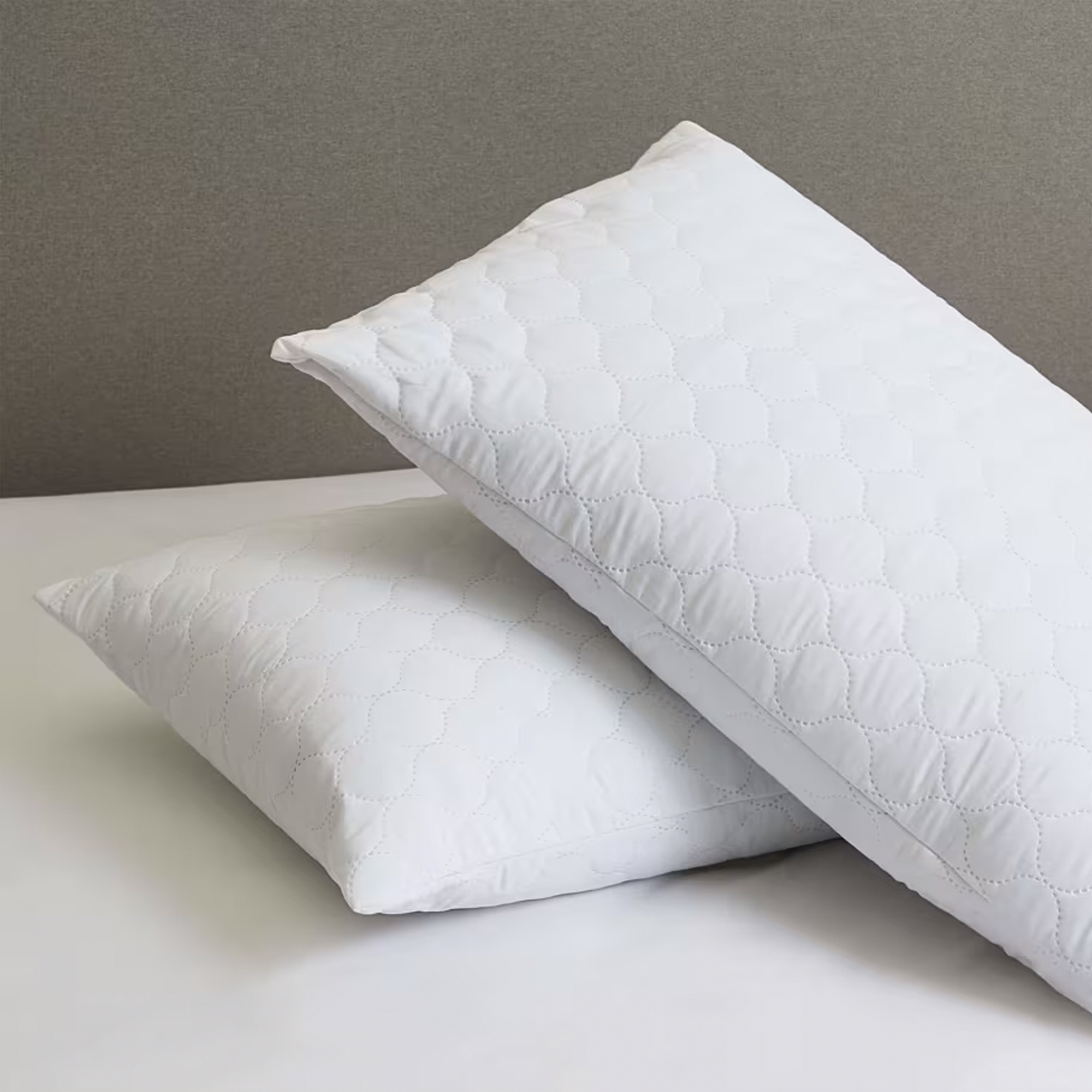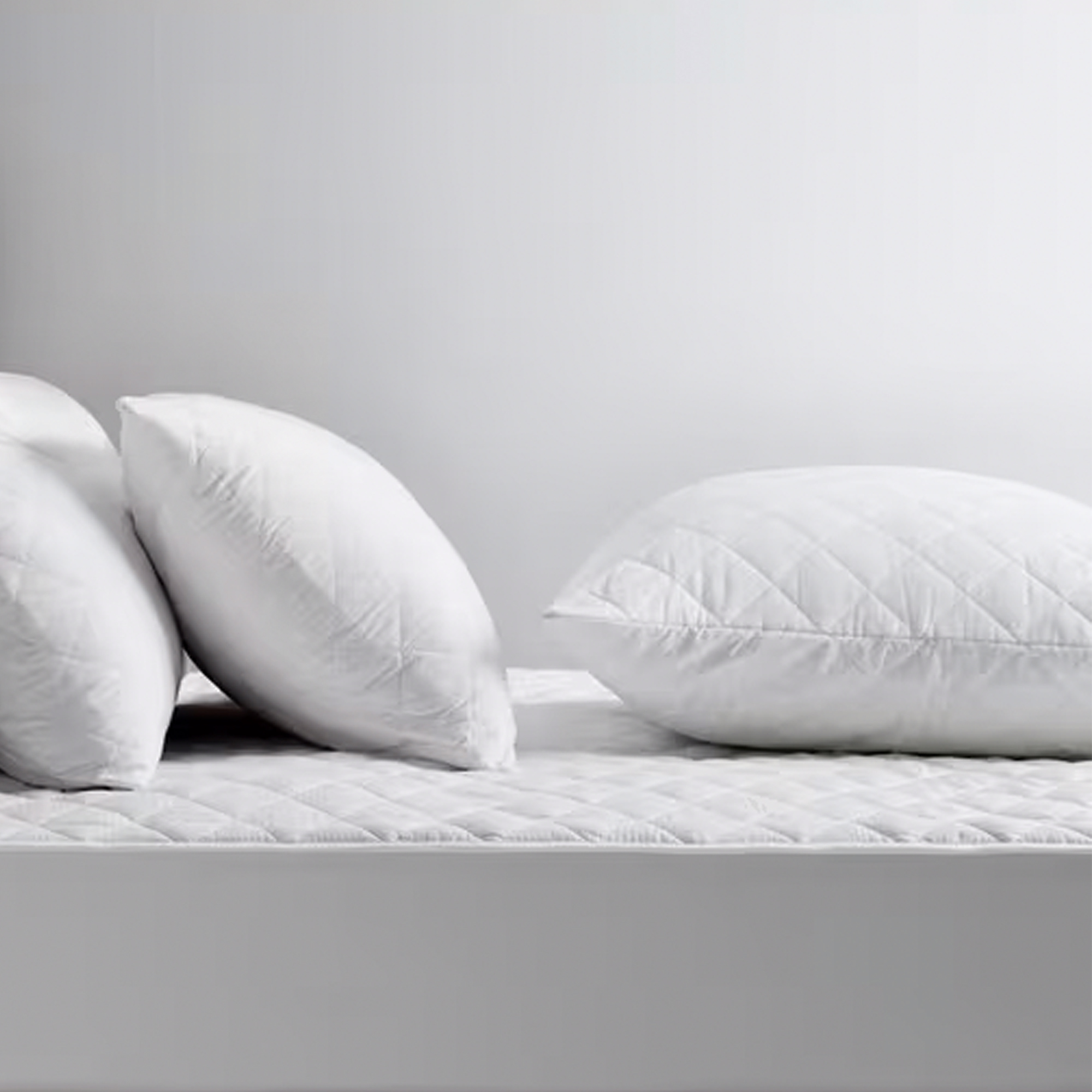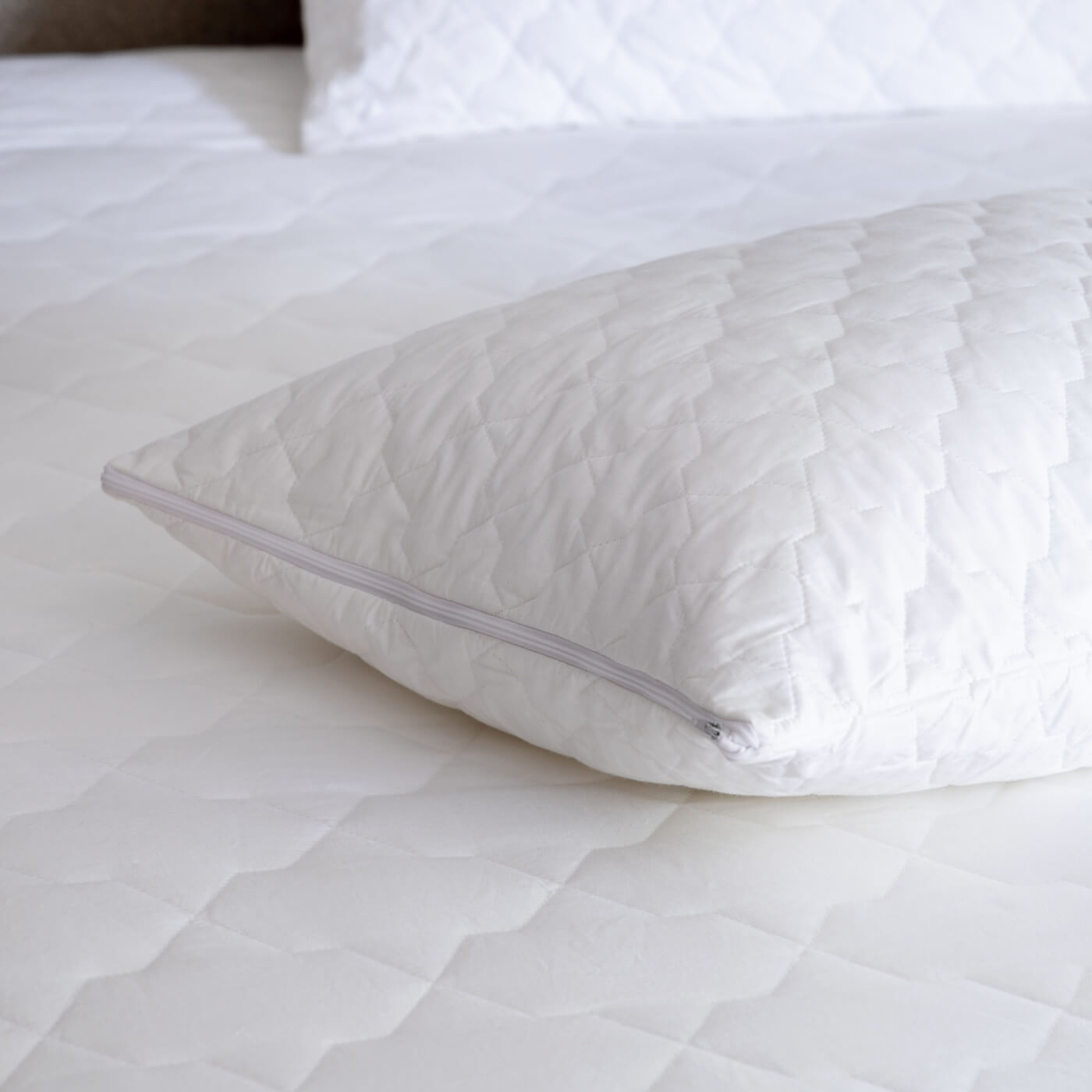How often should you wash your pillows? Cleaning experts reveal all, and it's probably more frequently than you might think
Get ready for a figure that will shock you out of slumber

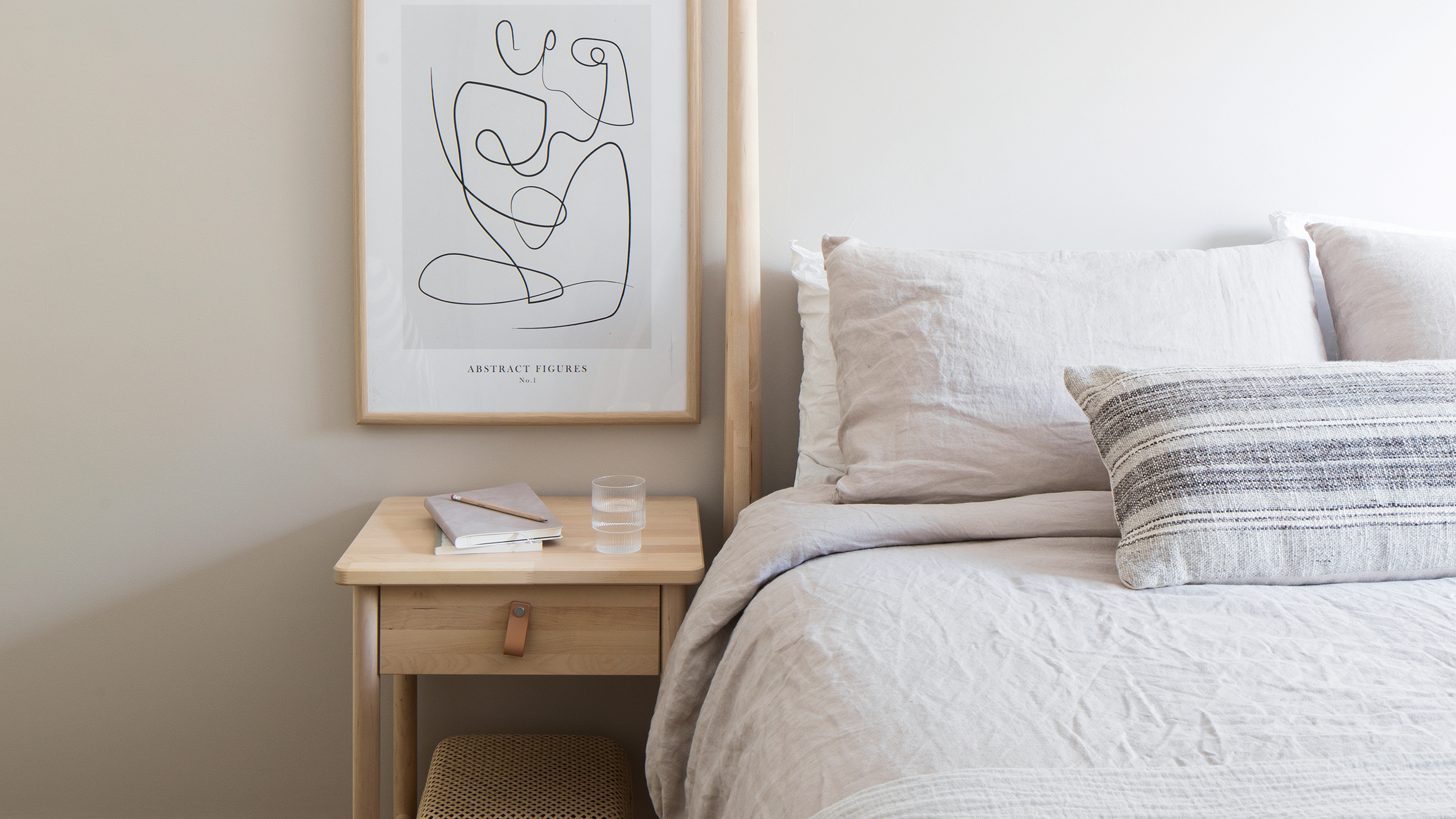
How often should you wash your pillows? If you’re asking that question, then first up, congratulations on realising this bedding essential actually *needs* washing! I think many of us – if we were honest – might admit to not having considered making pillow washing a part of our regular laundry routine.
Washing our pillowcases, sheets, and duvet covers regularly; of course. (Hopefully. And if not you definitely should be!). But washing the actual pillow itself? Perhaps not.
However, not only is learning how to wash a pillow easier than we might think, experts also advise that we should be doing it a lot more frequently than we probably are; every three to six months in fact.
But there are important factors that might mean you should do it even more often, especially if you suffer from allergies or asthma. I asked a range of household cleaning and bedding experts for their advice.
How often should you wash your pillows
'I’d generally recommend washing your pillows every 3 to 6 months,' says household cleaning expert Petya Holevich of Fantastic Services. 'However, if you struggle with allergies, asthma, or another type of chronic health condition, you’ll need to wash them more frequently, around every 3 to 4 months instead.'
'I recommend washing pillows as frequently as every 3 months, especially if you have allergies such as asthma, or if the pillow has been exposed to sweat, oils, or other contaminants,' agrees Emily Barron, cleaning expert at Property Rescue .
'Pillows should be washed every three months,' confirms Lucy Ackroyd, head of design at bedding brand Christy, 'as, similar to bedding, they contain a build-up of sweat and dead skin'.
Sign up to our newsletter for style inspiration, real homes, project and garden advice and shopping know-how
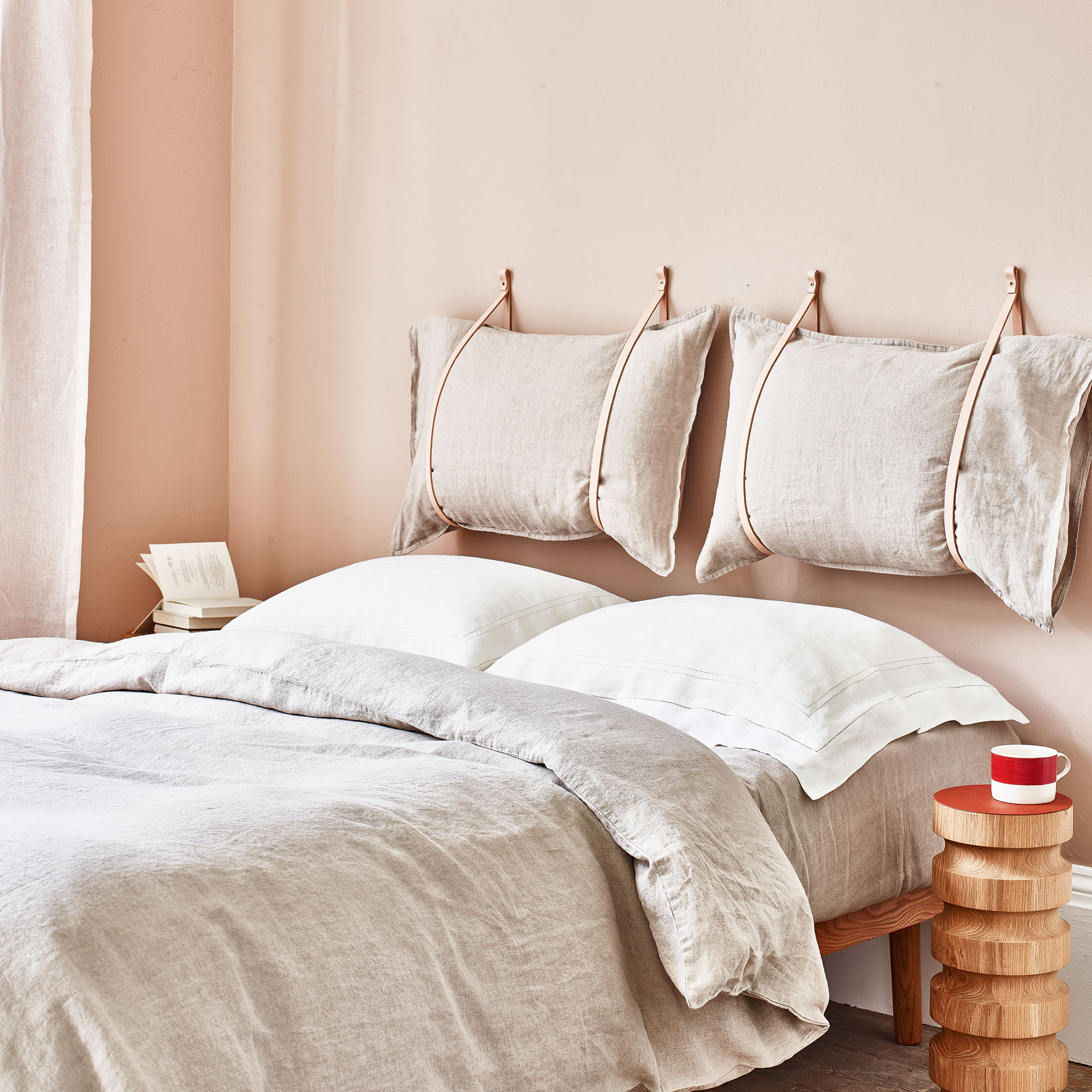
It seems the expert advice is unanimous and we should all be washing our pillows every three to six months, but *why* should we wash our pillows this regularly?
Well, even the best pillows aren't self-cleaning. Although we’re hopefully all using a pillowcase to protect our pillow from direct contact with our head, sweat, body oils, hair grease, drool, and dead skin cells can still penetrate the pillowcase and get onto our pillow. Yuck.
You might notice that over time this can lead to yellowing of your pillow. 'Yellow stains on pillows can be caused by various factors,' explains cleaning expert Petya. The most common causes are ‘sweat and natural body oils produced by your skin, saliva from drooling during sleep, going to bed with wet hair, and makeup and skincare products.'
And, when it comes to how to get rid of yellow stains on pillows, a regular washing routine is key.
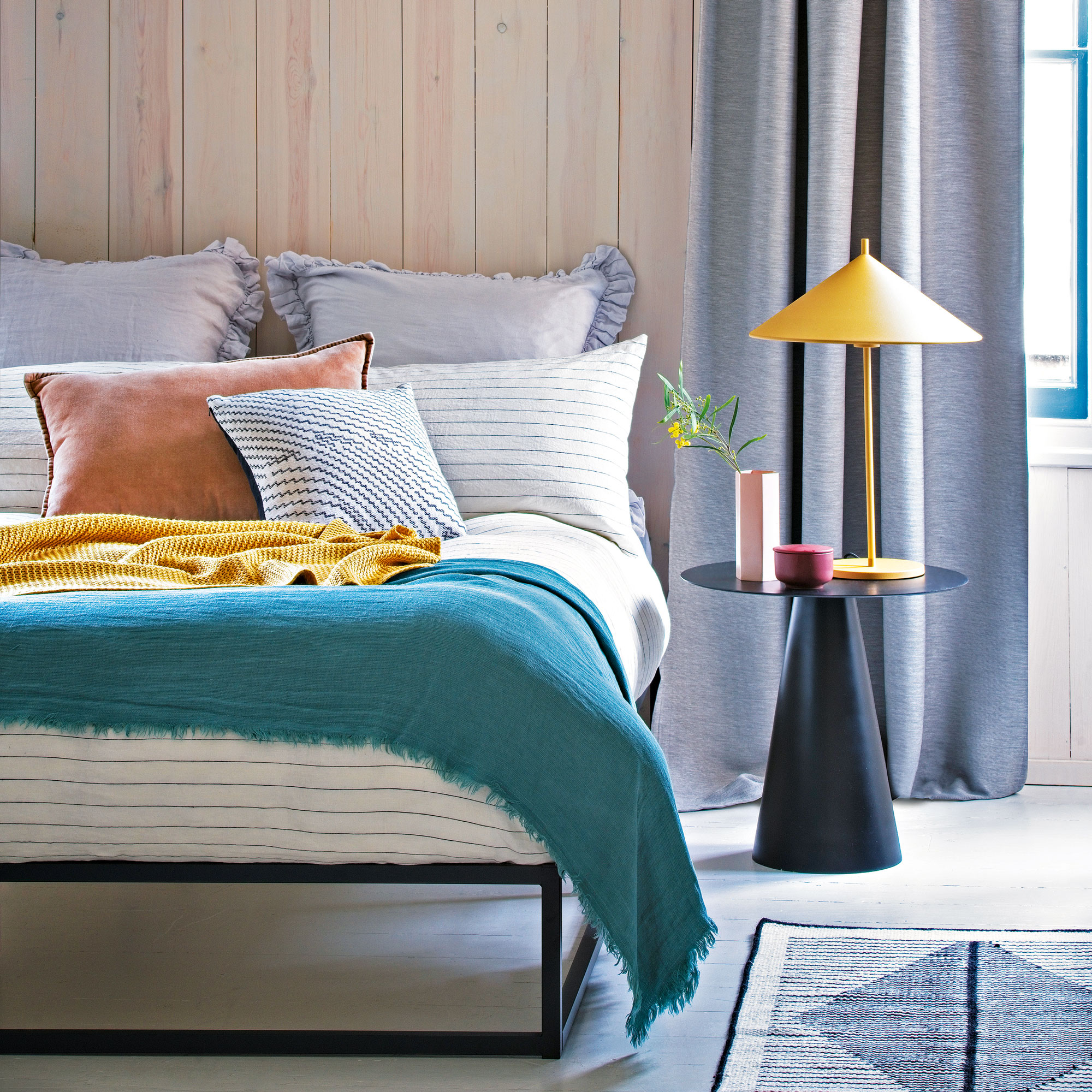
In addition, over time pillows can also accumulate allergens like pollen, dust mites, pet dander, and even mould, which can trigger allergic reactions in those who suffer. That’s why frequent washing is so important.
However, there is a caveat. The frequency with which you wash your pillows, and how you wash them, also depends on their filling.
'Synthetic pillows made from polyester can be washed more frequently and can withstand higher temperatures in the washing machine,' explains Emily. That means that microfibre and hollowfibre-filled pillows should be fine to wash as frequently as you like. If you suffer from allergies, that could mean polyester is the best filling for a pillow.
But how about other fillings, can you wash feather pillows the same way? 'Natural down or feather pillows may require more delicate care, such as dry cleaning or hand-washing, and should be washed less frequently,' says Emily. 'Down and feather pillows will require less frequent washing than synthetic pillows. However, it still needs to be done periodically,' agrees Petya.

It's also important to note that even the best memory foam pillows can't usually be washed. So, if you suffer from allergies and think you may want to wash your pillow more frequently, this is something to bear in mind when it comes to how to choose the right pillow for you.
That said, Petya has a top tip to keep pillows that can't be washed as frequently in tip-top condition. 'Use pillow protectors,' she says, 'these are washable and act as a barrier preventing stains from forming and allergens from reaching your pillow itself.'
Yes, in the same way that one of the best mattress protectors will defend your mattress from stains, a pillow protector will shield your favourite pillow, meaning you might not need to wash it quite so frequently. Here are three of our top recommendations.
Of course, no matter how often you wash your pillow it isn't going to last forever, and there will still come a time when you have to bite the bullet and replace it. How often should you replace your pillow? Every two years according to the experts.
But a regular cleaning schedule will prolong your pillow's lifespan and create a healthier sleep environment for you in the meantime.
So, when did you last wash your pillow? If you're brave enough to reveal all let us know in the comment section!

Amy is Ideal Home’s Sleep Editor and the Ideal Home Certified Expert on Sleep. She's spent the last four years researching and writing about what makes for the best night’s sleep during the day and testing out sleep products to find the best-in-class by night. So far she’s clocked up over 10,000 hours of pillow, duvet, and mattress testing experience.
Our go-to for all things sleep-related, she’s slept on and under bestselling products from Simba, Emma, Hypnos, Tempur, Silentnight, Panda, and many many more.
As a hot sleeper, Amy is always on the lookout for the most breathable bedding, but she also leads a wider team of testers to ensure our product testing encompasses both hot sleepers, cold sleepers, front sleepers, back sleepers, side sleepers, and everything in-between.
